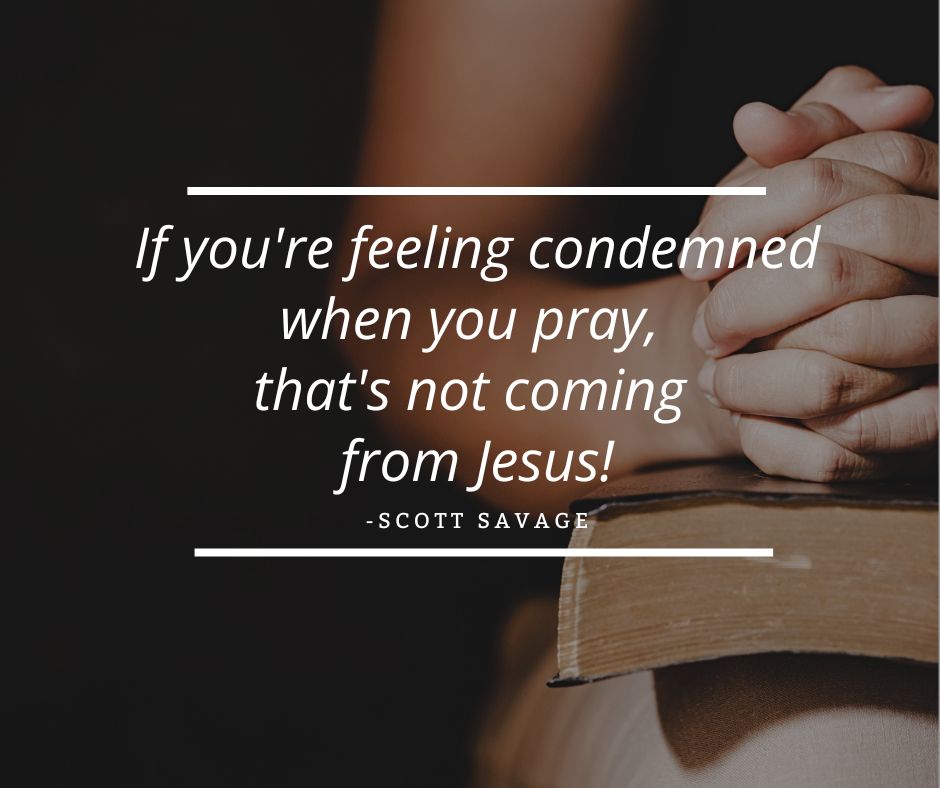Help! I'm Not Good at PrayerSample


Do you have friends or family members who excel in a particular arena of life?
My friend Keith has always excelled at managing his money and investing wisely.
I marvel at my friend Alissa's discipline with her diet and fitness.
My friend Josh is a fantastic dad who raises three adventurous boys full of faith.
When I get around these friends, they don't need to preach to me about these areas of their lives where they excel. Their habits and lifestyle are attractive and compelling. Spending time with them leaves me feeling convicted and longing to adjust my choices and habits. Sometimes, though, a spirit of self-condemnation enters, and I feel inferior. They aren't saying a thing, but my internal voice does a good enough job.
In Luke 18, we see a kind of influence between the two praying men. One man (the Pharisee) speaks his prayers to justify himself before God and make the other man (the tax collector) feel less than worthy of God's attention.
It might sound extreme, but attacking someone's self-worth like this is demonic. In John 10, Jesus says the thief comes to steal, kill, and destroy. Revelation 12 describes "the accuser of the brethren" who accuses them day and night. Satan loves to lie to us and deceive us into self-condemnation when God truly offers us forgiveness.
Many of us confuse the voice of God with the voice of our enemy, Satan. Instead of trusting God's voice, we believe in the voice of our shame. The voice we listen to as we pray is essential.
Several years ago, my pastor heard me share about a battle I was fighting with insecurity in a specific area of my life and leadership. He gave me a chart that contrasted God's voice and the sound of my shame. The chart noted that God's voice stills me, leads me, reassures me, enlightens me, encourages me, comforts me, calms me, and convicts me. In contrast, my shame rushes me, pushes me, frightens me, confuses me, discourages me, worries me, obsesses me, and condemns me.
The most impactful contrast in that chart was how God convicts me and how shame condemns me. The Pharisee tried to blame the tax collector, while Jesus announced this man's forgiveness and justification before God because of his response to God's conviction.
Condemnation transforms our sins and failures into a declaration of our unworthiness. However, conviction reveals our sins and failures so that we can repent and experience the forgiveness Jesus' death and resurrection declared us worthy to receive. Conviction states that we did something terrible, while condemnation says we are wrong and beyond redemption.
When I think of this critical contrast, Romans 8:1 comes to mind. This verse is one of the most popular verses on this app every year because of the hope it offers us."Therefore, there is now no condemnation for those who are in Christ Jesus."
If you're feeling condemned when you pray, that's not coming from Jesus!
This liberating truth is part of the beauty of prayer. You shouldn't let a lack of confidence or comparison keep you from it! When praying, God reveals Himself to you as He responds to your prayers. Learning about God reveals things in you and me that do not reflect His character.
In addition to the other invitations we receive, prayer is an invitation to conviction. We ask God to reveal in us the things that are not aligned with Him. That's a scary prayer!
In the same way that David asked God to search his heart in Psalm 139, we can invite God to make us more like Him by praying the tax collector's words. "God, have mercy on me, a sinner."
Tomorrow, we will conclude this plan with a passage of Scripture and an invitation that sustained me through the hardest season in my life as a pastor. If you're in a difficult time, you need these verses and this invitation.
About this Plan

If you've ever said, "I'm just not good at prayer," you're not alone! Millions of followers of Jesus struggle with prayer, feeling insecure, self-conscious, and discouraged about this key practice. In the Gospels, Jesus himself told a powerful parable that changed the way his followers thought about and practiced prayer. Who knows? That parable and this plan might just change the way you pray, too.
More
Related Plans

Be Thankful
![[Giving Jesus Away] to Seek and to Save](/_next/image?url=https%3A%2F%2Fimageproxy.youversionapi.com%2Fhttps%3A%2F%2Fs3.amazonaws.com%2Fyvplans%2F55091%2F320x180.jpg&w=640&q=75)
[Giving Jesus Away] to Seek and to Save

The Forgotten Teachings of Jesus
Heart Dive 365: Bible in One Year Chronologically

Collegiate Day of Prayer Global: 40-Day Prayer Guide

In the Garden (Bible App for Kids)

The Mysteries of Praise

The Cost of the Kingdom

7 Days of Prayer for the UK
